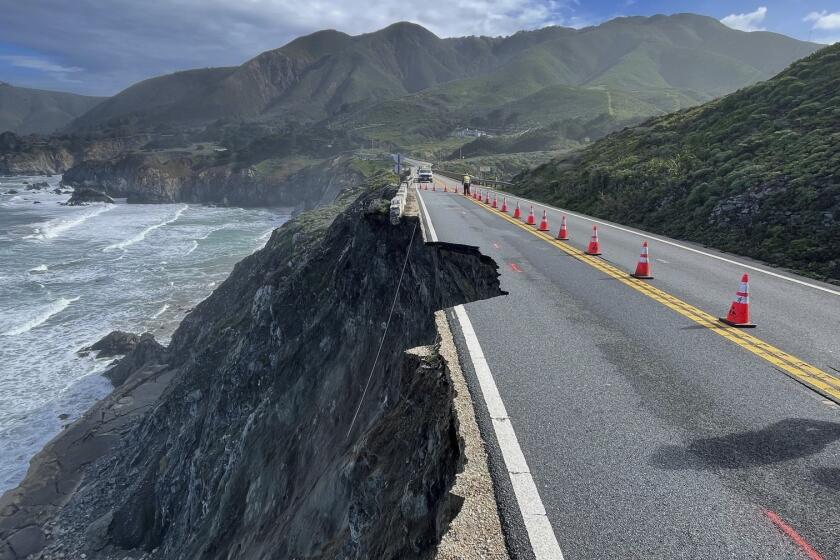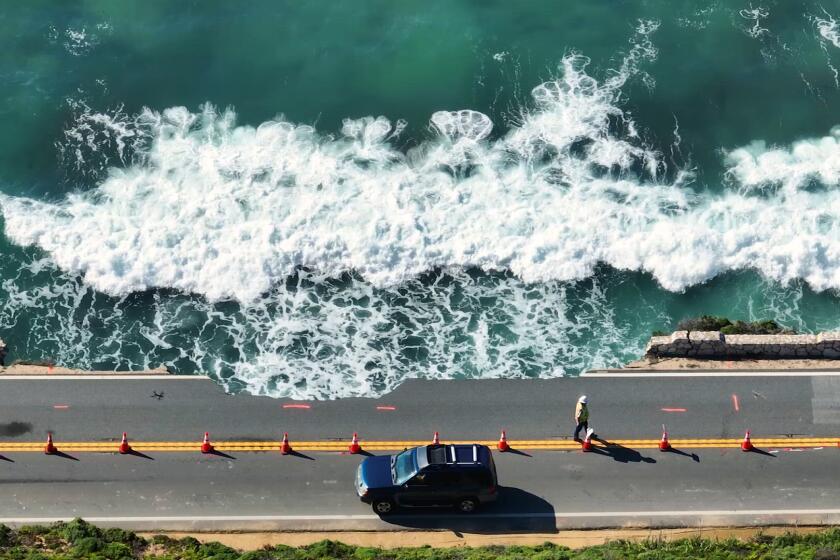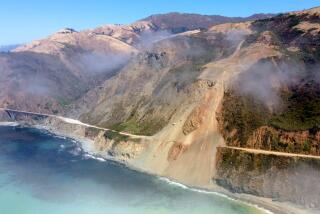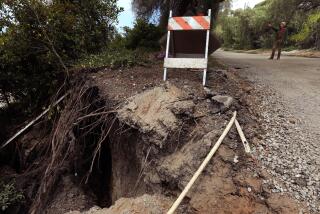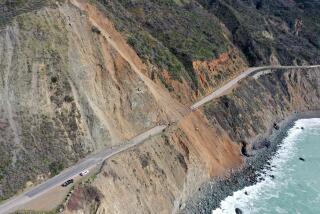Repairs on Big Sur’s collapsed Highway 1 start this week. No telling when they will end
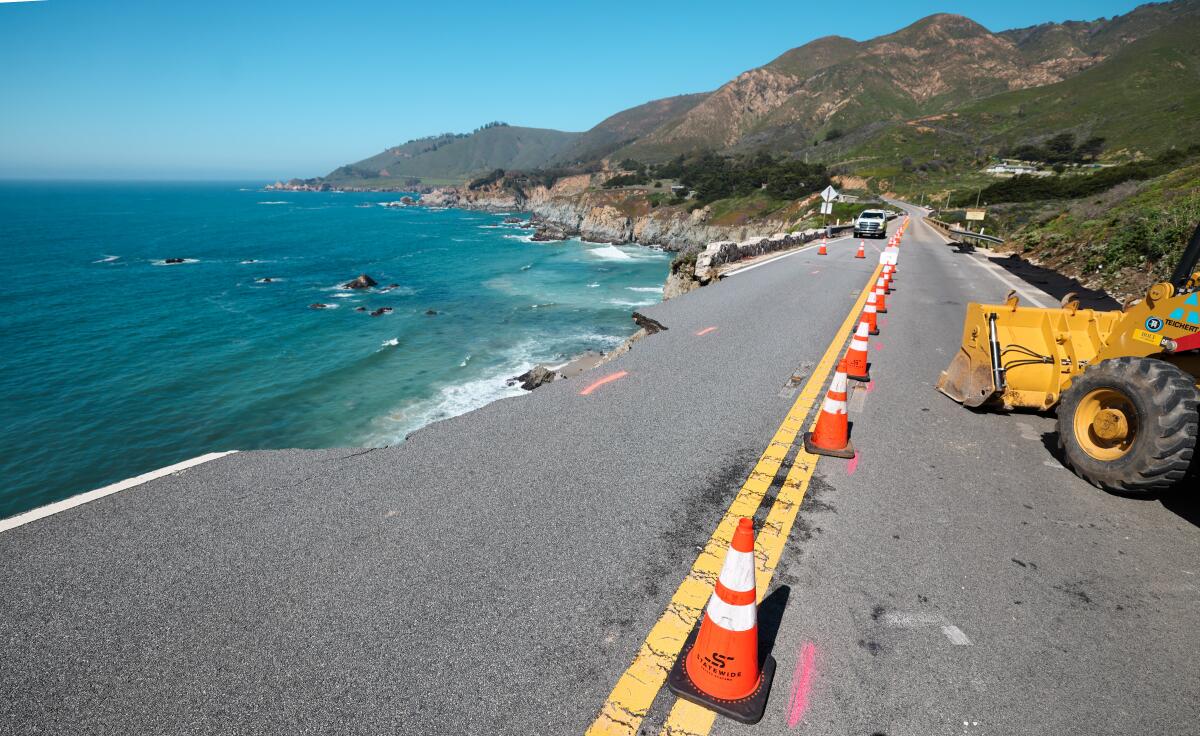
Stabilization efforts are expected to begin this week on a stretch of Highway 1 in Big Sur where a portion of the roadway crumbled into the ocean last month — temporarily stranding tourists and residents along the scenic Central Coast.
Since the collapse last month, travel has been severely limited for hundreds of residents now living between two sections of highway damaged by a series of landslides.
After installing some safety rails this weekend near the latest slip-out, California Department of Transportation officials said Monday that teams were staging equipment and finalizing plans to begin more extensive work this week.
“That’s the first order of business, to stabilize that edge of the roadway,” said Kevin Drabinski, a Caltrans spokesperson.
On Tuesday, contractors for the state are expected to begin drilling vertical anchors in the damaged southbound lane, jump-starting the stabilization work, according to an update Sunday. Drabinski said those vertical anchors will then be strengthened by horizontal supports that will be installed deep in the hillside.
The Monterey County Department of Emergency Management has been working to transport the reported 1,600 people stranded by Saturday’s landslide.
He said there is not yet a timeline for that first stage of work to be completed, but that he hopes officials will have an estimate later this week.
Once the cliff is stable, Drabinski said, teams will be able to focus on more long-term repairs.
“We’re in the process of designing the permanent fix,” he said, noting it’s still too early to say exactly what kind of structural repair, such as a bridge or viaduct, will be necessary.
There’s no schedule for that portion of the work, either, Drabinski said. All work will continue to be contingent on weather, especially rain, which officials have said was probably responsible for the mounting damage along Highway 1. National Weather Service forecasts show possible rain in the area Friday and Saturday, but Drabinski said it’s too far out to determine how possible precipitation will affect roadway operations or access.
The slip-out on Highway 1 occurred just south of Rocky Creek Bridge, damaging a significant chunk of the cliffside southbound lane. Officials have since been able to open the northbound lane for limited, twice-a-day escorts, weather permitting. Drabinski said those convoys, intended for residents and essential workers, continue to run at 8 a.m. and 4 p.m.
Officials have said the northbound lane was not affected by the land movement, but teams continue to monitor the stretch. Drabinski said Monday there have not been any noticeable changes since the initial slide.
Caltrans teams this weekend installed concrete barriers along the highway’s center line and also added new temporary painted road lines to widen the northbound lane.
Communities and businesses stuck between two landslides on Highway 1 in Big Sur will again be cut off for at least two days, as officials temporarily halt the convoys Thursday and Friday for weather.
The partial roadway closure further limits access to the scenic highway through Big Sur, which is still recovering from other landslides last winter and earlier this season that closed a different stretch of the roadway about 40 miles south. The ongoing road damage in the two locations has effectively closed an almost 40-mile stretch of the highway to the public, a devastating blow for the area’s tourism-based economy.
Caltrans officials hope to be able to fully open the northbound lane near Rocky Creek Bridge as soon as possible, with signalized, one-lane traffic.
Drabinski said the ongoing closures to the south, which begin near Limekiln State Park, could open by late spring or early summer if repair work continues as planned.
More to Read
Sign up for Essential California
The most important California stories and recommendations in your inbox every morning.
You may occasionally receive promotional content from the Los Angeles Times.
